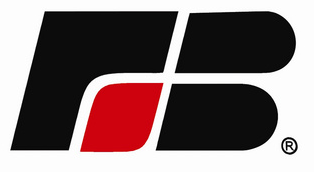Related Research Articles

The Agricultural Adjustment Act (AAA) was a United States federal law of the New Deal era designed to boost agricultural prices by reducing surpluses. The government bought livestock for slaughter and paid farmers subsidies not to plant on part of their land. The money for these subsidies was generated through an exclusive tax on companies which processed farm products. The Act created a new agency, the Agricultural Adjustment Administration, also called "AAA" (1933-1942), an agency of the U.S. Department of Agriculture, to oversee the distribution of the subsidies. The Agriculture Marketing Act, which established the Federal Farm Board in 1929, was seen as an important precursor to this act. The AAA, along with other New Deal programs, represented the federal government's first substantial effort to address economic welfare in the United States.

Corporate farming is the practice of large-scale agriculture on farms owned or greatly influenced by large companies. This includes corporate ownership of farms and selling of agricultural products, as well as the roles of these companies in influencing agricultural education, research, and public policy through funding initiatives and lobbying efforts.

The Constitution of the Commonwealth of Puerto Rico is the controlling government document of Puerto Rico. It is composed of nine articles detailing the structure of the government as well as the function of several of its institutions. The document also contains an extensive and specific bill of rights. It was ratified by Puerto Rico's electorate in a referendum on March 3, 1952, and on July 25, 1952, Governor Luis Muñoz Marín proclaimed that the constitution was in effect. July 25 is known as Constitution Day.

The American Farm Bureau Federation (AFBF), also known as Farm Bureau Insurance and Farm Bureau Inc. but more commonly just the Farm Bureau (FB), is a United States-based insurance company and lobbying group that represents the American agriculture industry. Headquartered in Washington, D.C., the Farm Bureau has affiliates in all 50 states and Puerto Rico. Each affiliate is a (regional) Farm Bureau, and the parent organization is also often called simply the Farm Bureau.
An Agricultural Produce Market Committee (APMC) is a marketing board established by state governments in India to ensure farmers are safeguarded from exploitation by large retailers, as well as ensuring the farm to retail price spread does not reach excessively high levels. APMCs are regulated by states through their adoption of a Agriculture Produce Marketing Regulation (APMR) Act.

The Legislature of the State of Oklahoma is the state legislative branch of the U.S. state of Oklahoma. The Oklahoma House of Representatives and Oklahoma Senate are the two houses that make up the bicameral state legislature. There are 101 state representatives, each serving a two-year term, and 48 state senators, who serve four-year terms that are staggered so only half of the Oklahoma Senate districts are eligible in each election cycle. Legislators are elected directly by the people from single member districts of equal population. The Oklahoma Legislature meets annually in the Oklahoma State Capitol in Oklahoma City.
Nebbia v. New York, 291 U.S. 502 (1934), was a case in which the Supreme Court of the United States decided that New York State could regulate the price of milk for dairy farmers, dealers, and retailers.

The Oklahoma House of Representatives is the lower house of the legislature of the U.S. state of Oklahoma. Its members introduce and vote on bills and resolutions, provide legislative oversight for state agencies, and help to craft the state's budget. The upper house of the Oklahoma Legislature is the Oklahoma Senate.
Oregon Ballot Measure 37 is a controversial land-use ballot initiative that passed in the U.S. state of Oregon in 2004 and is now codified as Oregon Revised Statutes (ORS) 195.305. Measure 37 has figured prominently in debates about the rights of property owners versus the public's right to enforce environmental and other land use regulations. Voters passed Measure 49 in 2007, substantially reducing the impact of Measure 37.

In re Article 26 and the Regulation of Information Bill 1995 [1995] 1 IR 1 was a decision of the Supreme Court of Ireland after a referral by President Mary Robinson under Article 26 of the Constitution of Ireland. This is a procedure whereby the constitutionality of a bill is considered by the Supreme Court before it is signed into law, similar to the concept of a facial challenge in the United States. If the Court finds that it is constitutional, it may not later be challenged after its enactment.

Proposition 2 was a California ballot proposition in that state's general election on November 4, 2008. It passed with 63% of the votes in favor and 37% against. Submitted to the Secretary of State as the Prevention of Farm Animal Cruelty Act, the initiative's name was amended to officially be known as the Standards for Confining Farm Animals initiative. The official title of the statute enacted by the proposition is the Prevention of Farm Animal Cruelty Act.

Right to farm laws in the United States deny nuisance lawsuits against farmers who use accepted and standard farming practices and have been in prior operation even if these practices harm or bother adjacent property owners or the general public. Agricultural nuisances may include noise, odors, visual clutter and dangerous structures. All 50 states have some form of Right to Farm law.
Ag-gag laws are anti-whistleblower laws that apply within the agriculture industry. Popularized by Mark Bittman in an April 2011 The New York Times column, the term ag-gag typically refers to state laws in the United States of America that forbid undercover filming or photography of activity on farms without the consent of their owner—particularly targeting whistleblowers of animal rights abuses at these facilities. Although these laws originated in the United States, they have also begun to appear elsewhere, such as in Australia and Canada.
Genetic engineering in Hawaii is a hotly contested political topic. The Hawaiian islands counties of Kauai, Hawaii and Maui passed or considered laws restricting the practice within their borders due to concerns about the health, the environment and impacts on conventional and organic agriculture.

An Act to Prevent Cruelty to Farm Animals, more commonly known as Question 3, was the third initiative on the 2016 Massachusetts ballot. The measure will require Massachusetts farmers to give chickens, pigs, and calves enough room to turn around, stand up, lie down, and fully extend their limbs. It will also prohibit the sale of eggs or meat from animals raised in conditions that did not meet these standards.
Animal welfare and rights in Switzerland is about the treatment of and laws concerning non-human animals in Switzerland. Switzerland has high levels of animal welfare protection by international standards.

Proposition 12 was a California ballot proposition in that state's general election on November 6, 2018. The measure was self-titled the Prevention of Cruelty to Farm Animals Act. The measure passed, by a vote of about 63% Yes to 37% No.

The Indian agriculture acts of 2020, often termed the Farm Bills, were three acts initiated by the Parliament of India in September 2020. The Lok Sabha approved the bills on 17 September 2020 and the Rajya Sabha on 20 September 2020. The President of India, Ram Nath Kovind, gave his assent on 27 September 2020.
Federal referendums were held in Switzerland on 7 March, 13 June, 26 September, and 28 November 2021. Swiss referendums take three forms: popular initiatives, which are citizen proposals to create a new law and require 100,000 valid signatures on a petition to get on the ballot; facultative or optional referendums, which are citizen proposals to approve or reject a piece of existing law and require 50,000 valid signatures on a petition to get on the ballot; and mandatory referendums, which are required to revise the constitution, join an international organisation or introduce emergency federal legislation for over a year.

The Value Them Both Amendment, also known as the VTB Amendment or Amendment 2, is a rejected legislatively referred constitutional amendment to the Kansas Constitution that appeared on the ballot on August 2, 2022, alongside primary elections for statewide offices, with early voting from July 13. If enacted, the amendment would have declared that the Kansas Constitution does not guarantee a right to abortion, given the Kansas state government power to prosecute individuals involved in abortions, and further declared that the Kansas government is not required to fund abortions.
References
- ↑ "State Question 777: Constitutional Limits on Regulation of Agriculture." Oklahoma Policy Institute. OKpolicy.org, 25 Oct. 2016. Web. 03 Mar. 2017.
- ↑ Charles, Michelle, Stillwater News Press. "Oklahoma Farm Bureau Backing Right to Farm." Stillwater News Press. N.p., 14 July 2016. Web. 03 Mar. 2017.
- ↑ "RIGHT TO FARM OR RIGHT TO HARM?" SQ777 | Kirkpatrick Foundation. Kirkpatrick Foundation, n.d. Web. 03 Mar. 2017.
- ↑ "Claims That SQ 777 Will Boost Food Security Are Hard to Swallow." Oklahoma Policy Institute. OKPolicy.org, 25 Oct. 2016. Web. 03 Mar. 2017.
- ↑ Cobb, Russell (March 2020). The Great Oklahoma Swindle, Race, Religion, and Lies in America's Weirdest State. p. 38. ISBN 9781496220035.